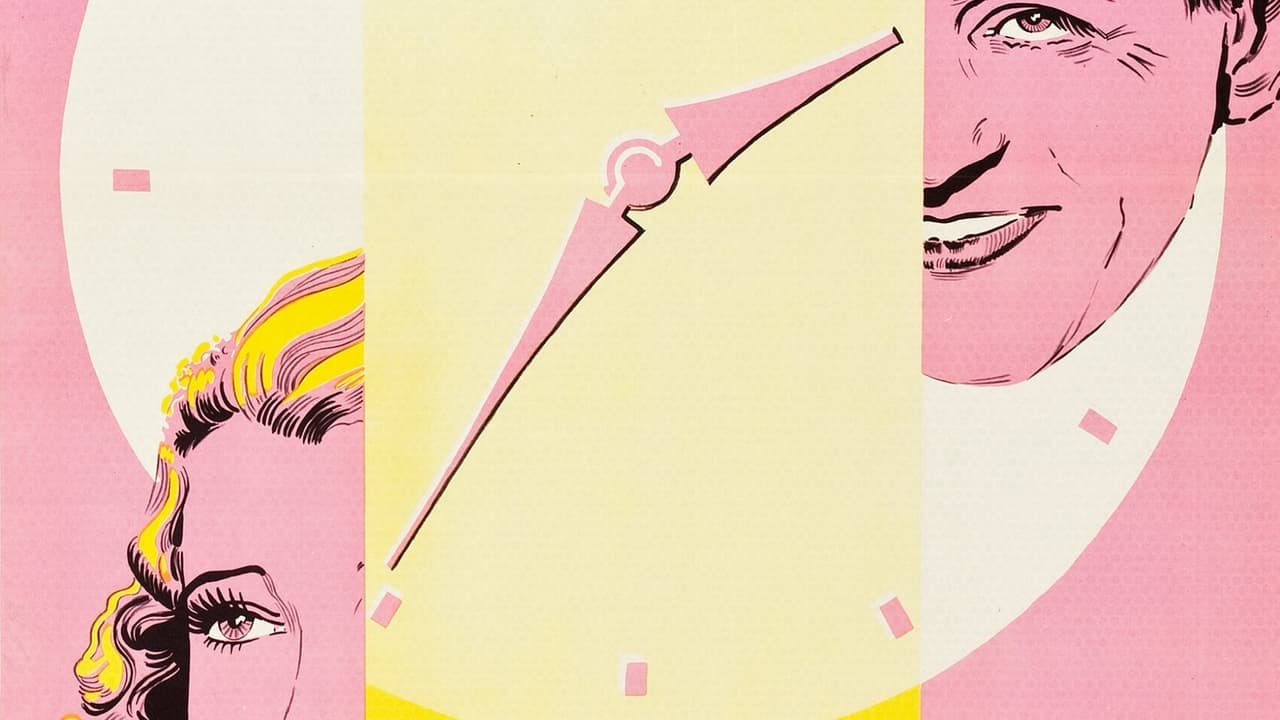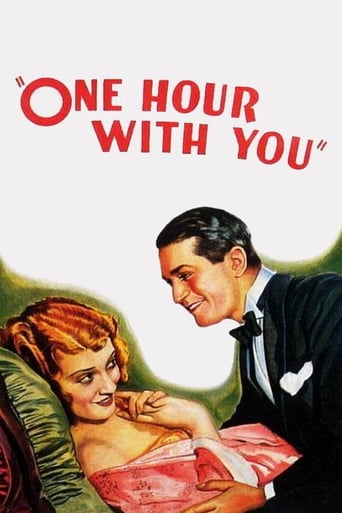

"One Hour With You" which seemed so fast and so risqué when I first saw it back in 1955, now looks somewhat slow and even tame. Nonetheless, there is still a lot that provides amusement and solid entertainment in the film. If the central situation is no longer as amusing as it was and if the film seems somewhat stage-bound by an excess of dialogue (some of it delivered at a rather slow pace), there is still some witty lines and ingratiating performances — particularly by Maurice Chevalier, Genevieve Tobin, Charlie Ruggles and in a brief appearance at the very beginning of the film, George Barbier. Mr. Young is agreeable but belongs to the slow delivery school and as for that arch songstress, Jeanette MacDonald, she seems to have strayed into this confection from an altogether different film, her acting is too studied and her singing too operatic to harmonize with the other members of the cast. Still, once accepted, she is not too much of a liability. Chevalier is perfect, both in song and performance, and has just the right light yet mock-serious approach to both. The songs are entrancing and the orchestrations a delight — thank heavens Lubitsch uses them and other background music to underscore most of the action. When there is no music, the proceedings are sometimes rather heavy going.Lubitsch fans will revel in this film. There are plenty of examples of his famous touch: characters walking up and down stairs, and especially his use of off-screen action, or bits of business like Chevalier and MacDonald switching the light on and off in their bedroom.The costumes are dated but attractive. The soft focus photography shines on a properly proportioned theatre screen but does not come across so well on TV. The songs, music and orchestrations are feet- tappingly delightful, the art direction is attractive and production values leave nothing to be desired.
... View MoreErnst Lubitsch was a great director who very rarely made a dud. While One Hour With You may not be as good as The Merry Widow, Heaven Can Wait and The Shop Around the Corner it is still well worth watching and is a very good film overall. The film does drag a little towards the end and the ending is rather abrupt and awkwardly staged. But One Hour With You also has many pleasures, a case of the pros far outweighing the cons. One Hour With You is stylishly photographed with elegant period detail, and Lubitsch directs with his usual classiness. The songs are just great and generally do deserve to be much better known, the title song is the most well-known one and it is a catchy one indeed but we mustn't forget the risqué(for the time) Oh Mitzi, the witty Three Times a Day or the charming We Will Always Be Sweethearts. The dialogue is funny and sophisticated, the rhyming was really inspired and Maurice Chavalier's talking to the camera could have been annoying but was far from it. The story is very fluffy but very light-hearted, warm-hearted and sweet and nowhere near as improbable as the story for Monte Carlo(a better film than it's given credit for but the weakest Lubitsch I've seen so far). One Hour With You is beautifully acted especially from the sassy and beguiling Genevieve Tobin. Maurice Chevalier oozes wit and easy-going charm and avoids being creepy in Oh Mitzi despite the risqué/suggestive material. Jeanette MacDonald radiates on screen and sings beautifully in We Will Always Be Sweethearts(sad that she didn't sing more) and Roland Young is deliciously ironic and induces fireworks whenever he appears. All in all, a very good film if not among the best from Lubitsch. 8/10 Bethany Cox
... View MoreHusband Maurice Chevalier and wife Jeanette MacDonald are a happy couple discovered necking in a Parisian park and cannot make the police officer believe that indeed, they are a married couple. After all, what French married couple necks out in public among the single people being chased out by the moralistic police in a slightly amoral society? But indeed, Chevalier and MacDonald are happy, that is until MacDonald's flirtatious old school chum (Genevieve Tobin) shows up with her extremely serious husband (Roland Young, obviously cast against type.) Chevalier's best pal (Charles Ruggles, cast in type) has his eyes on MacDonald even though he was Chevalier's best man at their wedding. All comes out at a lavish dinner party, and afterward, Young names Chevalier in a divorce suit.This is romantic musical comedy at its glamorous best, beautifully directed by Ernest Lubitsch with a magnificent song score to boot. The title song and "Three Times a Day" (a song about taking medication sung by Chevalier while Tobin flirts) are wonderfully fun, and "Oh, That Mitzi!" is filled with innuendo. Everything is fixed easily of course, but not before lots of pre-code no-nos occur. The stars spend part of the film speaking directly to the audience, which greatly adds to the film's charm.
... View MoreWhen discussing the concept of the "integrated musical" names that first come to mind are Kelly/Donen and Vincente Minnelli. But wasn't Lubitsch really the pioneer? While this isn't as impressive as his almost effortlessly wonderful "The Merry Widow", it's so well put-together and flows pretty seamlessly (until the last act, that is) for a film made in the early sound period. Maurice Chevalier and Jeanette McDonald are the married couple crazy about each other, that is, until McDonald's old friend Mitzi comes to visit. What follows is another delicious look at marriage from the master of the romantic comedy Lubitsch. The tunes flow well even if I'm not a huge fan of opera. The camera technique is sharp and fluid. The performances are good. But the final act isn't. After a delightful merry go-round it all drags to a weird conclusion.
... View More